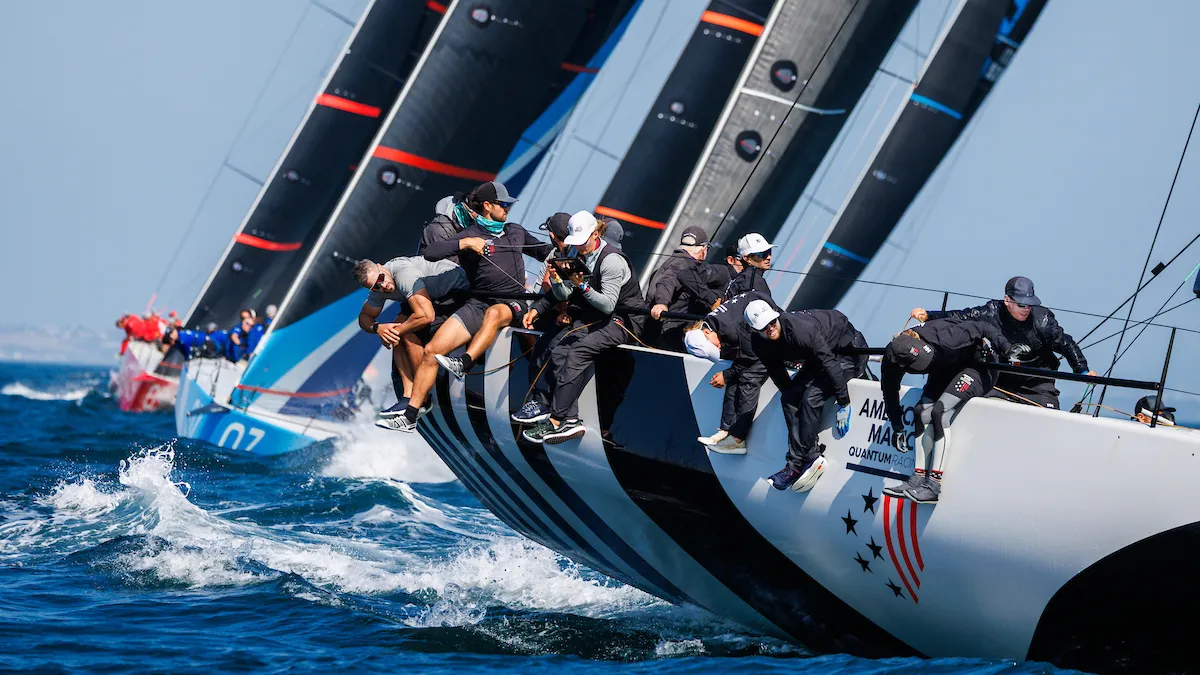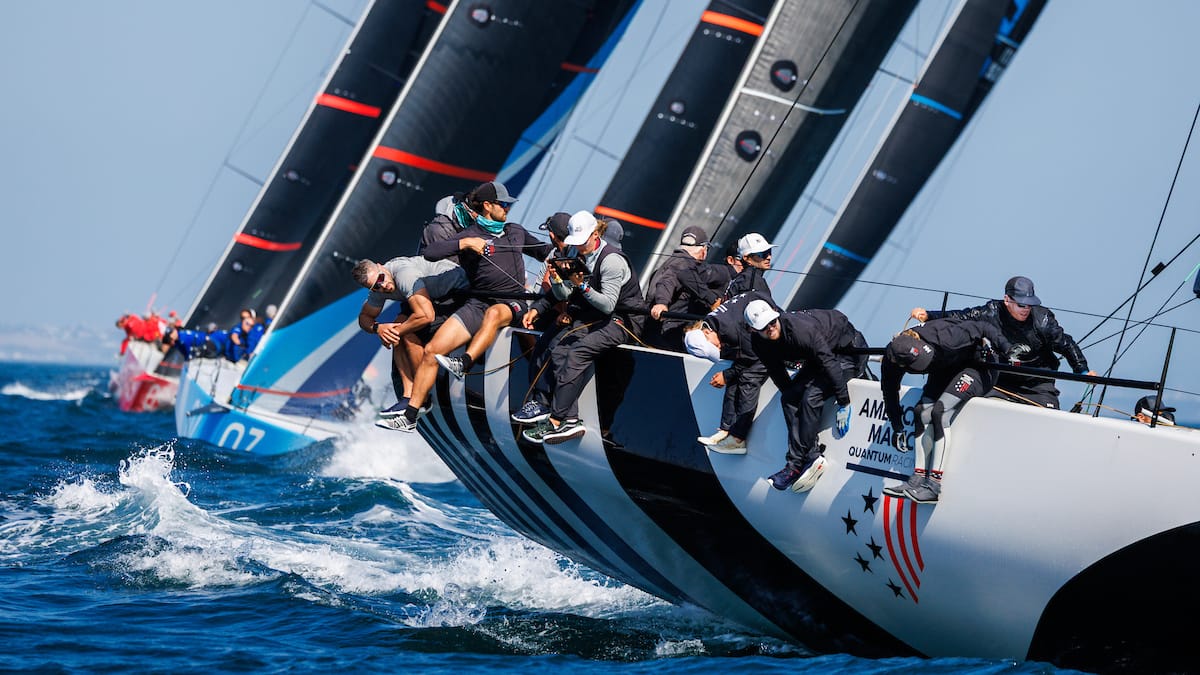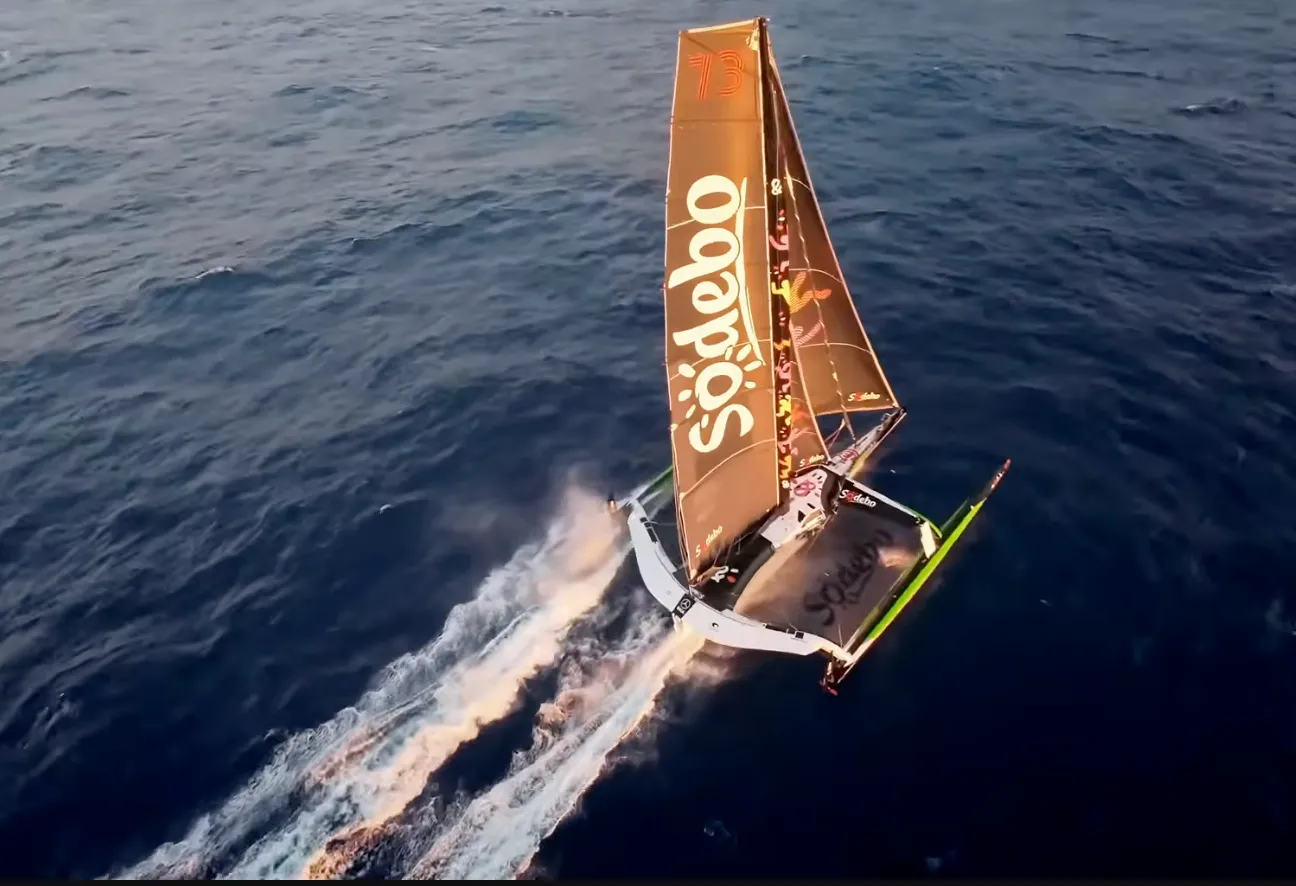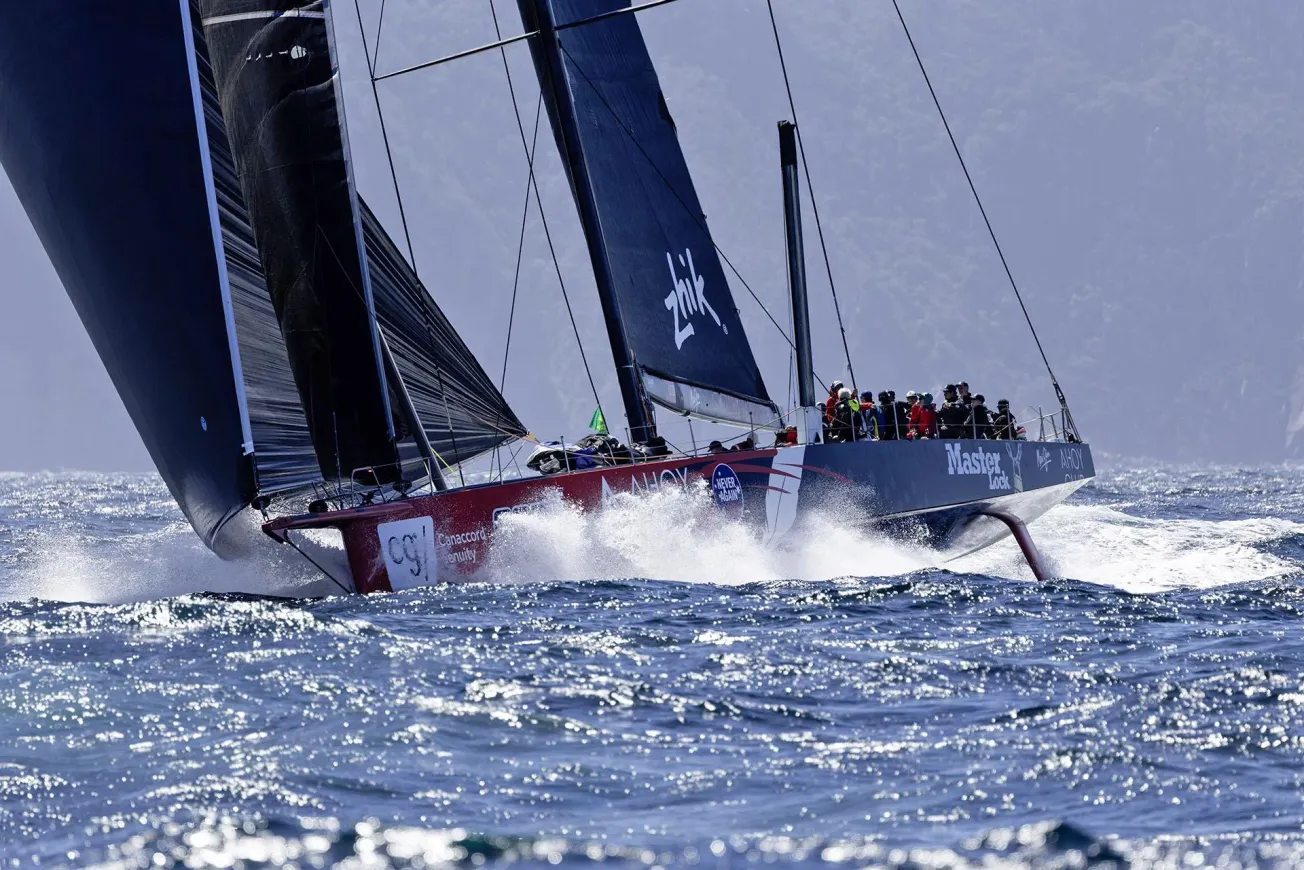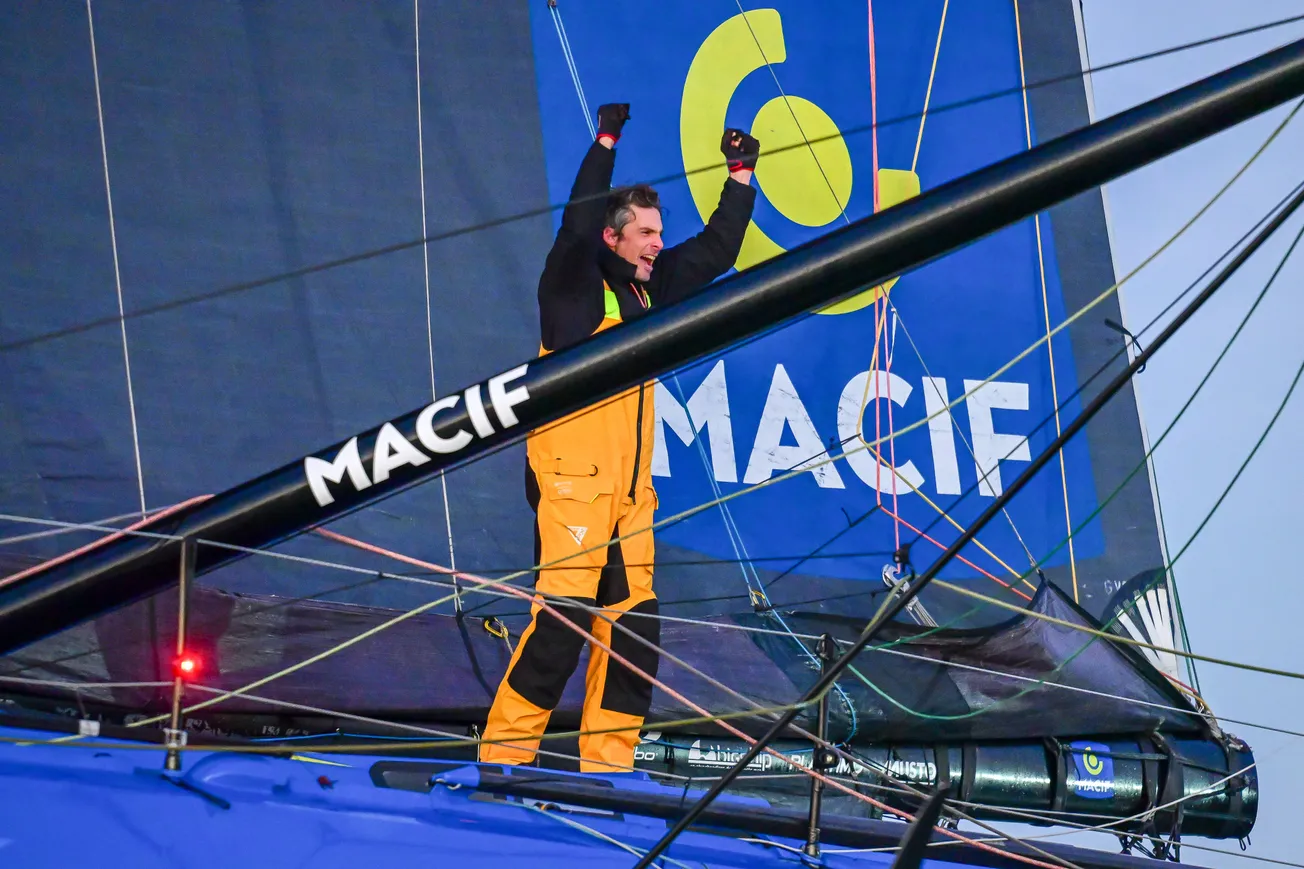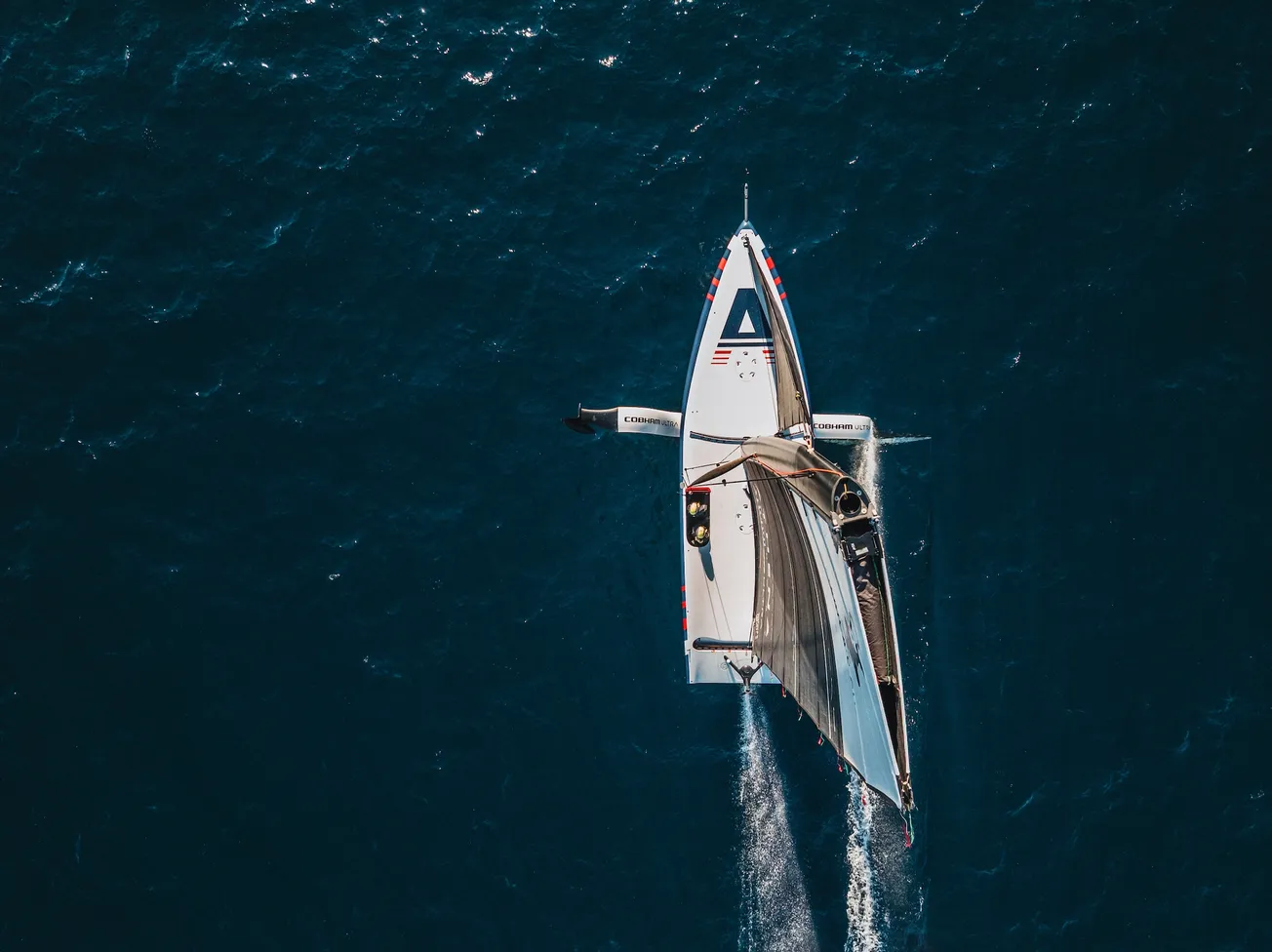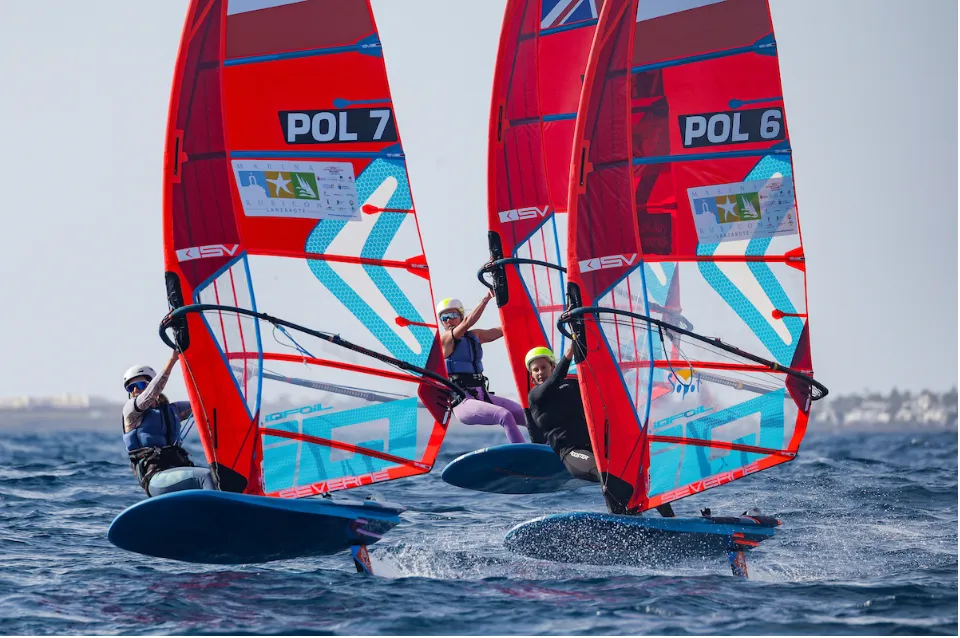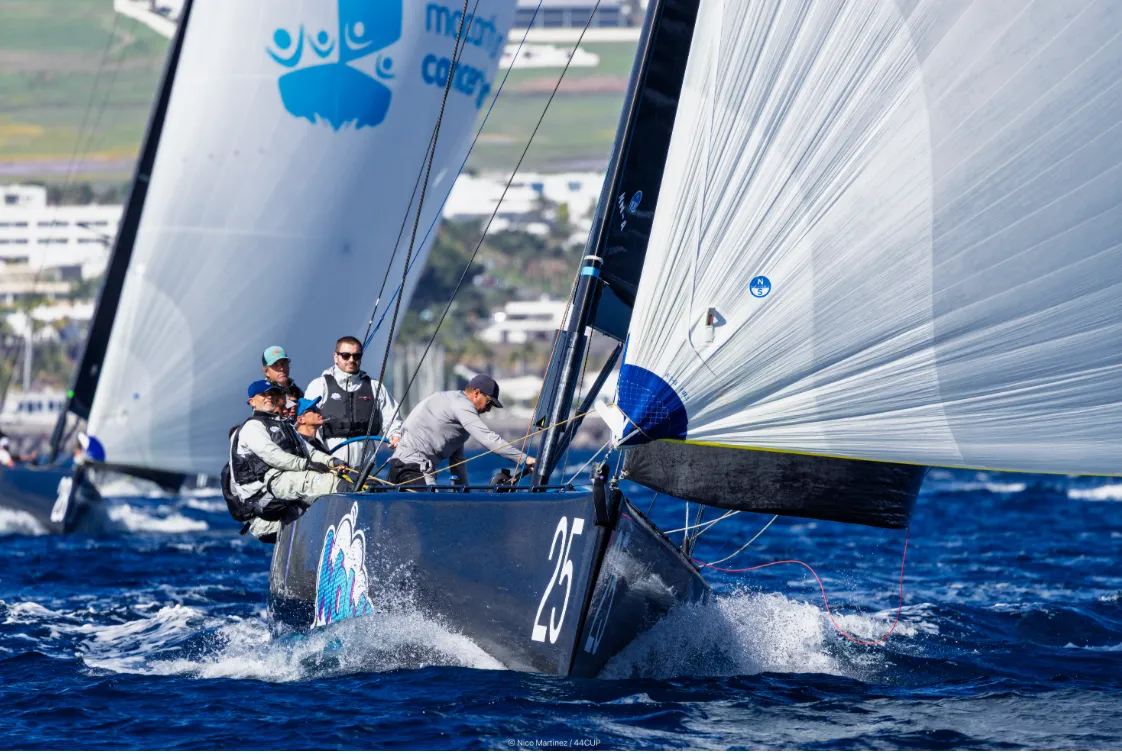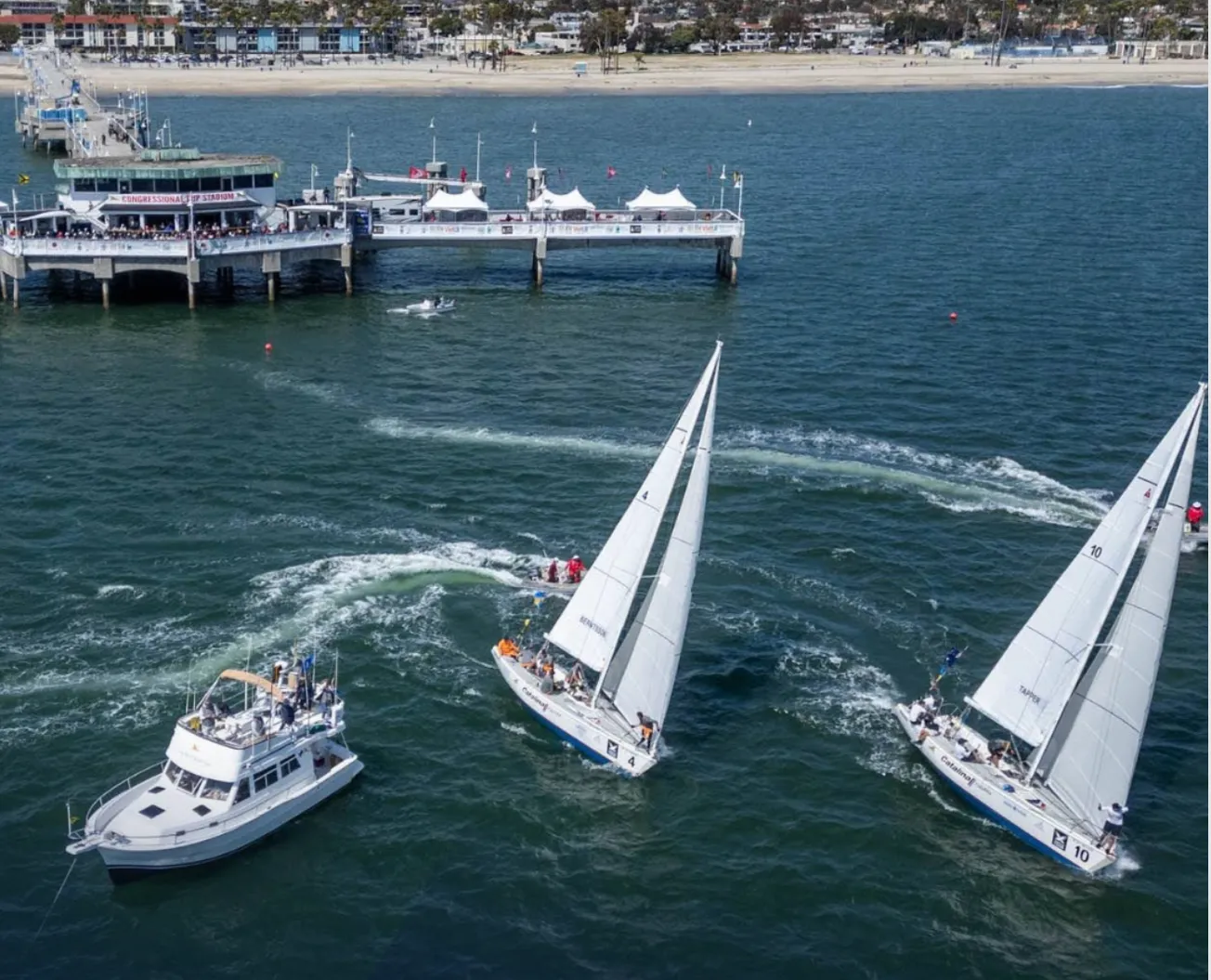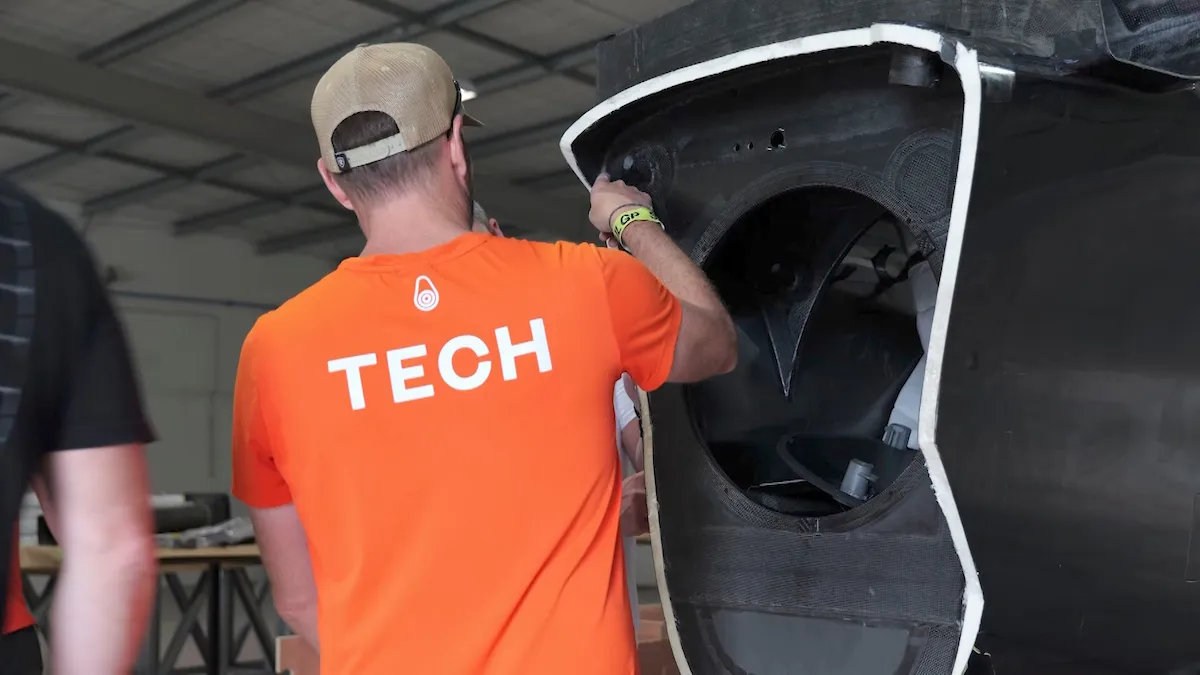To set the scene, can you describe the unique set of conditions that prevail in Cascais and why it is known as a predominantly windy venue?
The windy stuff is when they take us out to what they call the Alpha race course. It's just offshore. You come out of the harbor, and you take a right, and the further you go the windspeed ramps steadily up.
So the race committee had a huge challenge. They wanted to keep us in that quarter of 21 to 24 knots where it's not so out of control that you're not really racing, you're just surviving. Maria [Torrijo, principal race officer for the 52 Super Series] and her team did a really good job of keeping us in that space.
We did a three race day on the Saturday where we started at the bottom of the race course and it was in 17 to 19 knots of breeze, but at the top mark, it was 23 to 24. So you had these big pressure gradients from the top of the course to the bottom that were difficult to deal with.
How well do you know that venue personally?
We've sailed there a lot so I felt pretty comfortable. We took some good local knowledge with us for a couple of the training days and that gave Victor [Diaz De Leon, strategist] and Sarah [Stone, navigator] and myself a good reminder of what you do and what you don't do.
On the offshore course there's a lighthouse that sits on the corner of the beach. It's a great marker in that if you're aiming above the lighthouse on port tack you're in a pretty safe spot. If the bow is on the lighthouse or slightly to leeward of the lighthouse then know that you have to be really, really careful.
Cascais has that reputation for being a traditionally right hand race track. But how you get to the right hand side and pick up the geographic bend – that's where all the subtleties lay. We had a couple races where we won the beat from the left hand side and going right, but we only won it by a half a boat length. It was all within very subtle little margins. The subtlety in the positioning of how you approach the right hand side of the racetrack was pretty much everything. So when I reflect on the regatta, I can see where the wind gods were working with us in a lot of those situations.
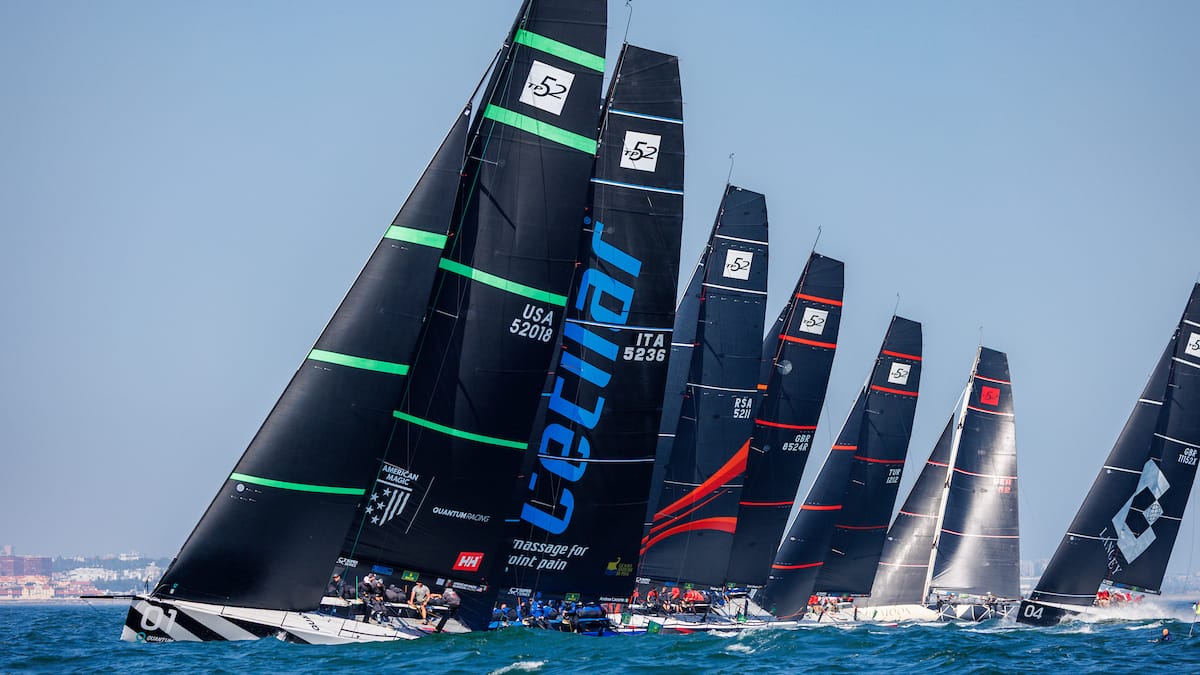
According to reports prior to the event, as a crew you were a little concerned about lack of time sailing in big breezes. What was your level of confidence going in and how did you approach that challenge?
It's a valid point. I think our level of confidence going into the regatta in light and medium range conditions was reasonably high. The conditions for the regatta were traditional Cascais, so over the week we had several opportunities to sail offshore and in big breeze.
Two days out from the event we were out in around 27 to 31 knots of breeze and we didn't gybe because it was too windy. We took the kite down, tacked around and went further down onto the race course area and found about 23 to 25 knots. We reeled off a sequence of 10 gybes back and forth with no real issues whatsoever.
That proved to be a really good day for all of us, because it was a good reminder of the difference between 30 knots, where the boat was pretty loaded and hard to sail, versus stepping into a just slightly lighter breeze and having the team be able to execute.
When it’s windy, the thing you know for certain on these boats is that when it goes bad, it goes bad very quickly. It's not necessarily the first mistake you make when it's really windy that will get you, often it will be the second one that gets you.
So from a tactical perspective, and a strategic perspective, we did a really good job managing things up until about race eight of the regatta. That was when I encouraged a manoeuvre that just was too top end for the conditions, and we paid for it. That had nothing really to do with the boat handling on board, that just was me with too much red mist.
We knew the key to the regatta really was about managing each maneuver – but attacking it as well. We're a physically small team – everybody's 90 kilos – so there's a lot of load on the grinding team. That reaps benefits in other areas – like that we're sailing with an extra person on board.
These boats are pretty much powered up in about seven or eight knots of breeze. How different is it when it's blowing high 20s?
The difference is you switch over from purely racing hard to also managing the asset and making sure you're not putting the boat into high risk positions. Part of that is recognizing what the crew is capable of – what you can and can't do. On these boats everything is pushed to the nth degree structurally and all the equipment is geared towards light to medium conditions. When you get into windy conditions, you do have to change your mentality and your approach.
What’s an example of something you do differently when it’s windy?Good examples are using the reelers [below deck reels that tidy up the spinnaker sheets out of the cockpit], or using the nets that keep all the sheets from washing out of the back of the boat when you take water over the deck.
In race four we were leading but ended up second when we did a windy gybe and friction-burned a hole in the luff of the spinnaker because the reeler on the old sheet got a little too tight. We could not head up to full power otherwise we would have blown up the chute. That meant we had to concede a position but it was the right choice. It was a good example of a situation that I think in the past, we wouldn't have been as patient about. So it was good to see that the team demonstrated that.
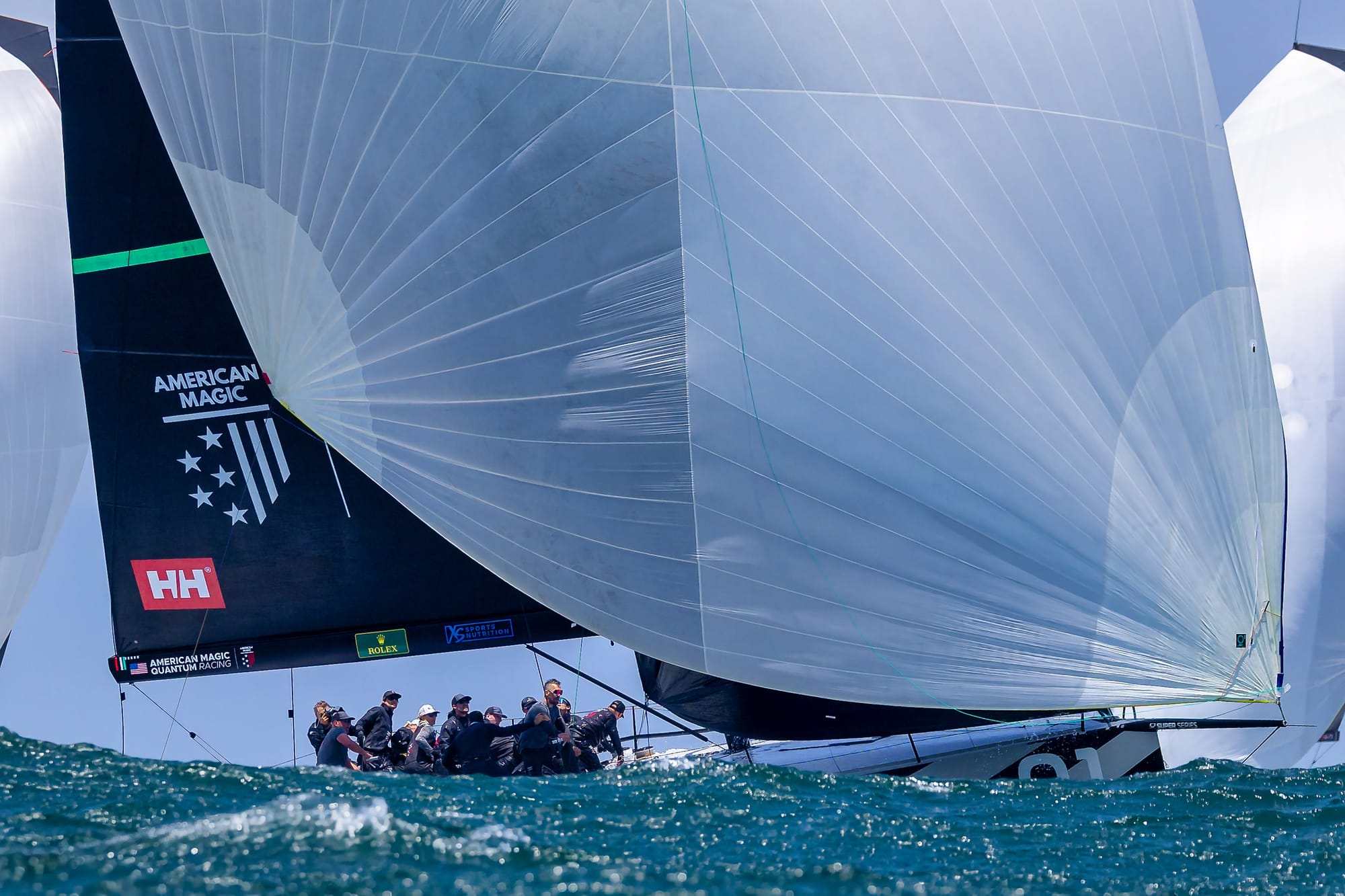
Talk us through the regatta from your team’s perspective. You started with a 3,2 on day one.
Whenever we have a two-race day, we're targeting coming home with seven points or less. So a three and a two is a keeper. The ‘three’ was a good race. The ‘two’ was the one was the race I just mentioned we led and then Paprek passed on the run.
On the second day we went one, three. The ‘three’ was a bad start, but we still got into the lead, and then the afterguard just made a couple really fundamental errors that cost us.
So I look at it and think the first four races should have been 3,1,1,1, and so the fact that we went 3,2,1,3, highlighted where we were weak – which was really good, really positive.
So on each one of those days you come off the water and you're in a good spot in the standings and you feel good about the racing – but you also know how much you left out there on the table.
We try really hard in those situations, especially in a world championship, to make sure that we're focused heavily on what we can do better. We don't get sidetracked by the scores.
And then the third day was the one race day and we got a sixth. That was a hard day, primarily because a lot of our instincts were saying do one thing, but the weather and a lot of other feedback on the race course was saying something different. My instincts were saying, go left, watch the left, protect the left. But everything else – the weather forecast, the strategist up the rig – were saying ‘boy, I really like the early right’. And the left side ended up paying hugely.
So, you know, that was such a hard day, but aside from that, we did a couple things really well. We got to the top mark in fifth and at the bottom mark we were in third, but we copped a penalty. That dropped us back to sixth – but it could have very easily been a ninth, because you could feel the anxiety on board, and you could feel the tension. But we made a couple really good decisions down the last run. I say ‘we’ but Victor did a really good job in talking through what he saw, and we had good comms going, so in the end you take the good with the bad over the day.
The next day we went 2,2,8. In retrospect, the eighth probably won us the regatta. We were OCS but we got back to fifth at the end of the first run. We were in a tricky spot going up the second beat with Paprek just to the right of us, and we were having a lot of discussion on board about where we were on the lay line. The communication was that we were laying, but long story short, we weren't. The marks are sitting out in a metre and a half swell and you can't really see them, so you're really going off of the computer.
When we recognized that we were shy, we could have tacked and switched to the right of them and everything would have been fine. But the communication on board was ‘we're laying’. When it became obvious that we weren't laying, it was too late to tack and we sailed ourselves perfectly into a situation where Paprek had us locked out.
We basically had to go head to wind and stop and wait for them to tack and then follow them. Well, they got a bit too aggressive. They tacked and then they broached. Then they had all the starboard tackers coming at them, so they had to loop back around. Meanwhile we tacked and took their transom and dipped the starboard tackers. We finished eighth in that race and they finished tenth.
I was furious when we got locked out because our goal on the day had been nine points or less – and we were in fifth. Life was good because we just recovered from an OCS. It highlights our lack of maturity as a team. We have a great blend of youth and experience, but you still have to bring that together and you have to turn that into consistent performance.
So we had to spend the entire evening stewing on that one, and that was frustrating. But again, it highlights the things that we have to do better as a team, and how we support each other, and how we communicate. At the end of the day, Victor has won nine world championships. He is an incredibly talented sailor. Sarah has done incredibly well in such a short period of time, in evolving into a racing navigator on an inshore racetrack. What we experienced are the basic mistakes that that teams make when they haven't spent a lot of time together in those situations.
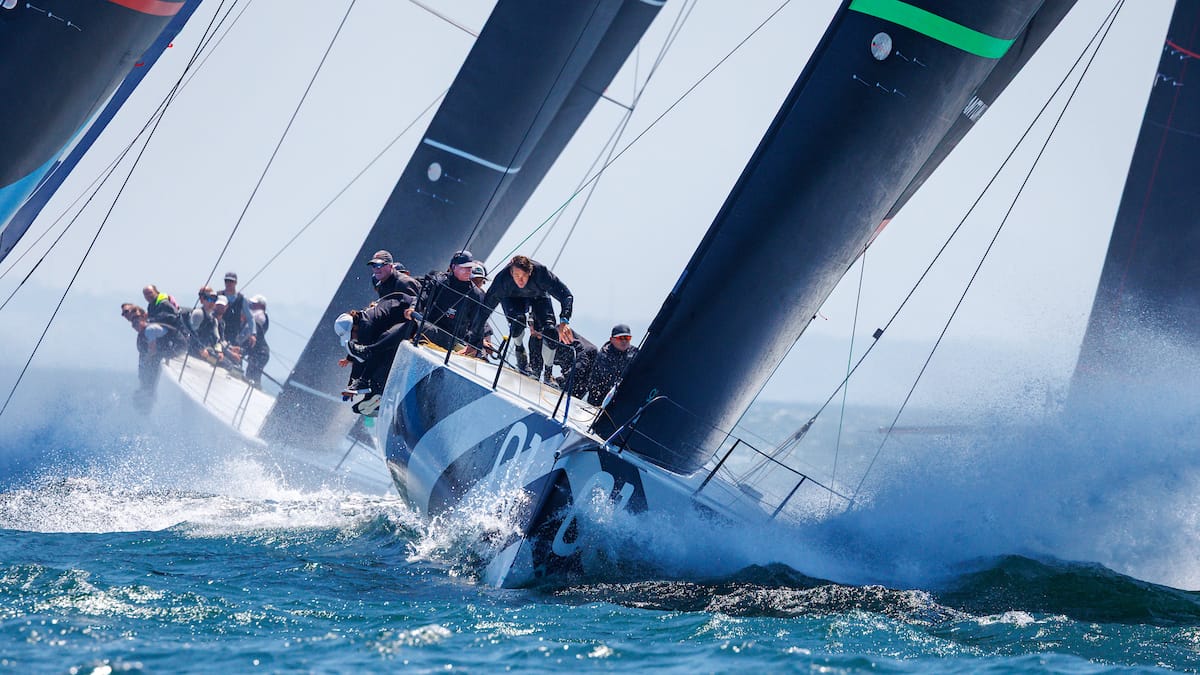
You mentioned being furious and frustrated at times. How did you manage the mood amongst the crew to avoid the risk of going into a meltdown after that incident?
We are fortunate that we have a really good support network on our boat. Coach, James [Lynne] is part of that, Ed Reynolds [president of Quantum Sails and team manager of the Quantum Racing campaign] is part of that. Harry [Melges, helmsman] is part of that, even though he's only 24 years old. In a lot of those situations I'll talk, partly to hear myself, to make sure what I'm communicating isn't just completely illogical, but also to get feedback. I knew for certain the ability to derail the entire team by getting upset was high. I couldn't do that. I didn't want to do that. We wanted to win the regatta.
As we were taking the sails down after racing we knew we were going into the last day with a five point lead and Lucas [Calabrese] said, “Well, if four days ago you knew you were going to have a five point lead going to the last day, would you take it?” And we were all like, absolutely yes.
And yet, we can't rest on that. We have to be accountable to each other. We have to be relentless in how we debrief. We have to be constructive. We can’t let mistakes like that be acceptable. Just sitting here talking about it, my hands are getting sweaty.
So you go into the final day, five points clear. What was the chat as you left the dock?
I think we were all feeling pretty good. We had put ourselves in a position to win the regatta and I think the first part of the discussion was that the hard world was behind us, so let's go out and stick to our seven points or less on this day. We knew it was going to be an up range day. The weather forecast was almost perfect to the T. I was a little bit surprised, quite honestly, that we raced where we raced, because at the top mark we had 26 knots and at the bottom mark a couple times we had seven knots. So that made it really, really difficult.
Without asking you to go into the fine details of the final day, you went on an emotional rollercoaster that saw you finish eighth and seventh – but still ended with you winning the regatta. It all went down to the final run. It seems like you held your nerve as a crew better than the others?
In retrospect, as a boat handling team and as a team in general, we had our worst results on the day but I would say we sailed our best day – because of how we communicated, and how we kept it tight on board. There was no tone. Everybody had ice water in their veins – which is what was required in the moment.
That was a challenging day, but I would give us the highest marks possible, because we kept it all together. It would have been easy to have a little bit of a meltdown, because of what Mother Nature was delivering. Thinking about it now, when I talked a bit earlier about the immaturity of our team and some of the mistakes we made, we gained in that department over the entire week, and that last day was an absolute test of the entire team. From our boat handling, to not getting upset when things went horribly wrong – and at times it didn't just go wrong, it couldn't have really gone any worse – but you didn't hear a chirp out of anybody on board.


